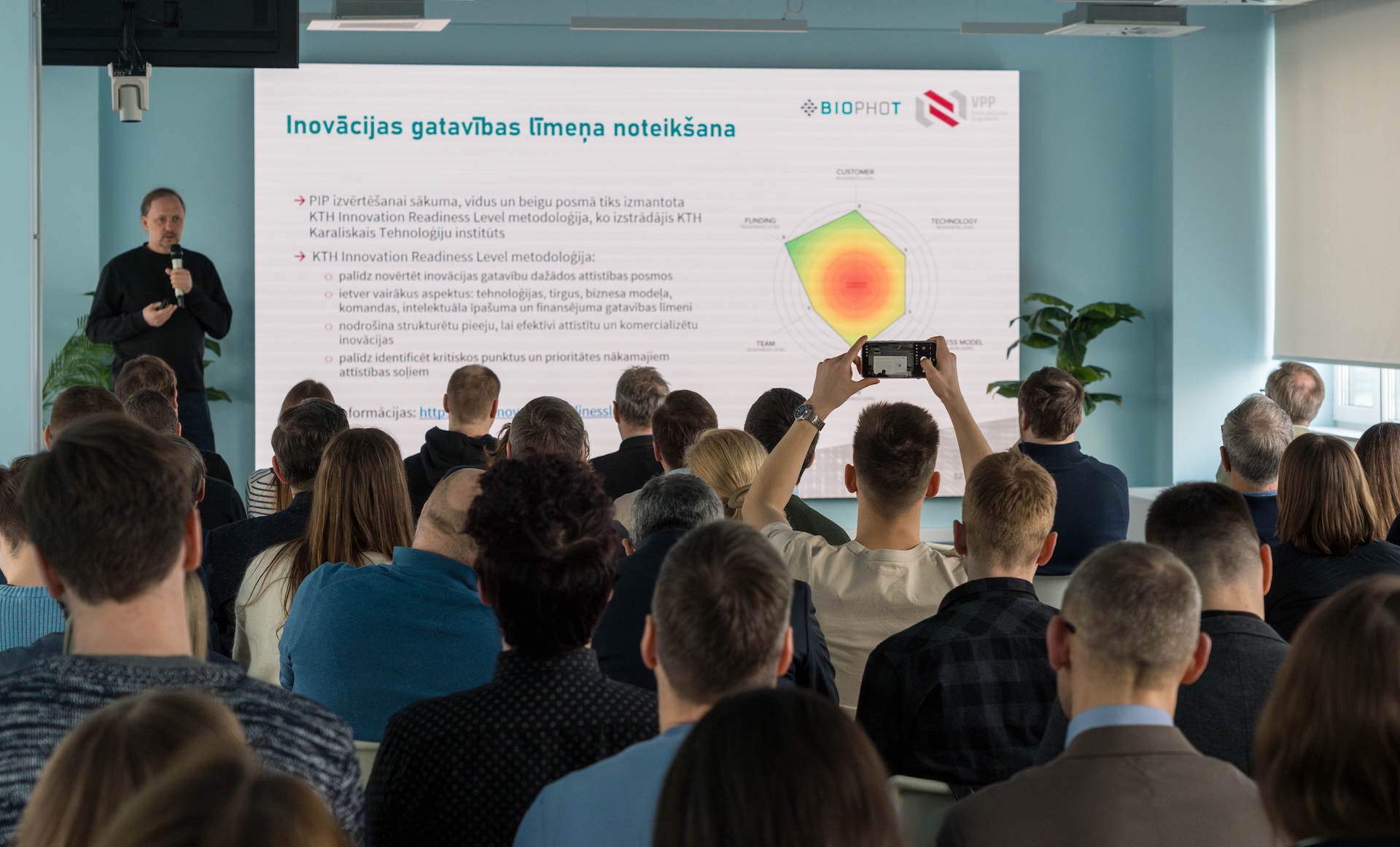On 20 March, the networking event BioPhoT Radar took place at the Science and Innovation Centre of Riga Technical University (RTU). It brought together more than 80 scientists and industry representatives to develop joint innovative projects and new cooperation opportunities to be further implemented through the National Research Programme (NRP) platform "Biomedical and Photonics Research Platform for Innovative Products" or "BioPhoT".
The BioPhoT Radar networking event aimed to foster collaboration between research organisations and companies to develop new and promising projects in the fields of biomedicine and photonics. Participants took part in an "idea sprint", where scientists presented their innovative ideas in a concise manner, while industry representatives shared their current topics and challenges. The interactive format of the meeting encouraged the generation of new ideas and active networking, which helped to identify new potential collaborative projects and strengthen established contacts.
The BioPhoT platform's Terms of Reference and the first call for proposals are expected soon. Researchers and science-intensive ideas from the biomedical, medical technology, pharmaceutical, photonics, smart materials, electronics, electrical engineering and technology and engineering systems sectors are invited to apply.
The BioPhoT platform represents a significant departure from the current approach to public funding, providing more targeted support for innovative projects in biomedical and photonics technologies. The funding process will specifically assess market demand for the technology developed, industry support and interest in its development. The selection process will start with a presentation to a panel of industry experts who will provide an initial assessment and help identify the most promising innovations.
There are a number of key requirements for project promoters: the timeframe for projects must not exceed 12 months and the maximum funding available for an idea is €200,000. Particular emphasis is placed on the level of technological readiness (TRL). In addition, participants are provided with regular mentoring support and are assessed not only on the TRL but also on the overall level of realisation of the innovation (IRL).
